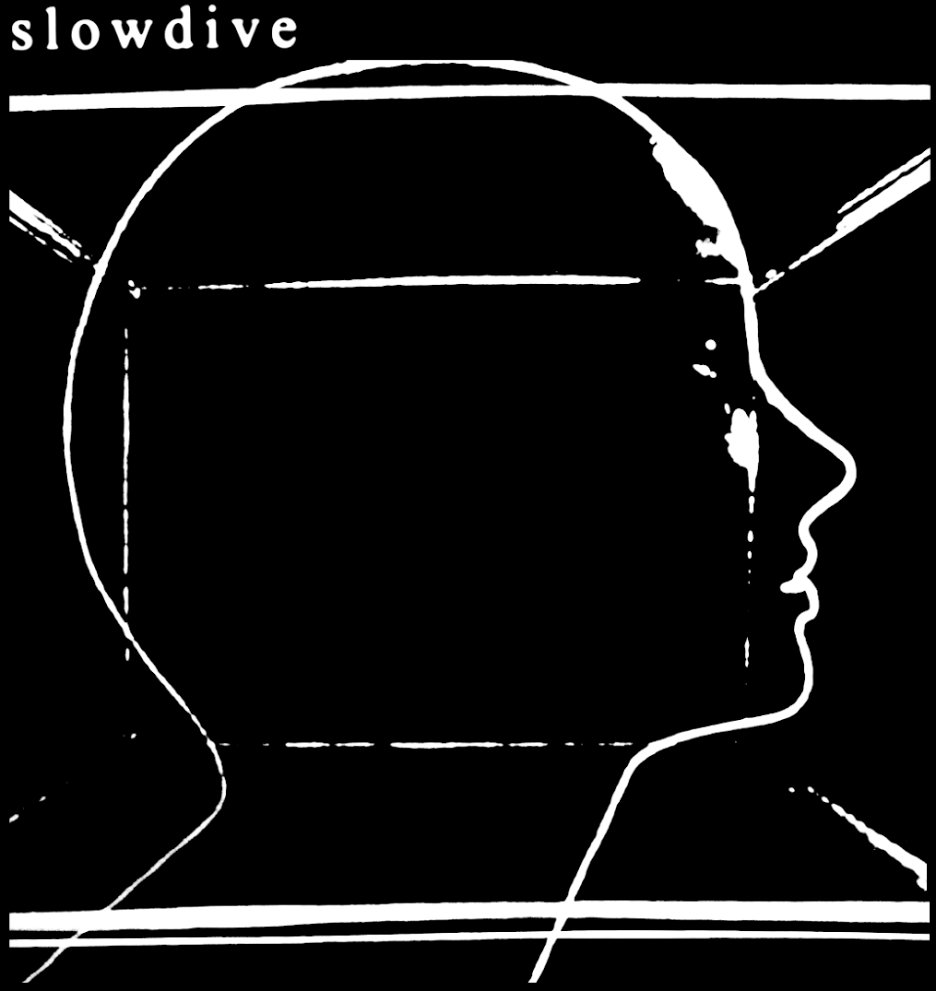We're used to reunions now. Burnt out on them, maybe. In the last five or 10 years, we've become accustomed to all our old favorites coming out of retirement or patching up their differences and dusting off the classics to give it another go. It's become baked into festival culture; it's inseparable from the cycles of nostalgia and retro-revivalism that have often defined our pop culture this century. It's gotten to the point where you can count on one hand -- maybe two -- the artists that could still make a massive splash if they reunited and hit the road once more, with or without new music. Talking Heads. The Smiths. Hüsker Dü. Fugazi. Oasis. R.E.M. That's about it. The list has grown shorter and shorter.
Within all that, a lot of cultishly beloved bands regrouped, often to fanfare from music media and tours that hit bigger venues than in the past, but without headlining Coachella or anything. Slowdive were one of those groups.
Whenever these reunions happen, there's of course talk of whether new music will happen too, whether the shows are simply a greatest hits retread, whether you even want new music or whether you're content to have a chance to see a band like the Replacements headline Primavera when, otherwise, they'd ceased to function around the time you were born. And as it always goes with legacy acts, sometimes new music just serves as setlist white noise crowding out decades-old favorites, or stuff that's embarrassingly "fine" relative to past highs.
So when Slowdive reunited and toured in 2014, it was easy to be excited if you'd never had the chance to hear "Souvlaki Space Station" thunder out across a crowd. When they talked about making new music, it was equally easy to think, "Well, we'll see how that goes."
Since the band's dissolution in 1995 -- shortly after the release of their third LP, Pygmalion -- Slowdive's critical clout shifted. Slowdive bore the brunt of the always-mercurial British music press when the Britpop explosion started up and "shoegaze" became a derogatory term. Slowdive were one of those bands that went from garnering praise for their sonic ingenuity to disdain for their supposedly vacuous moodiness. They were purveyors of, you know, psychedelic makeout music for artsy types who were depressive in a performative way. (They are that, of course, but that isn't a bad thing, nor is it all they are.) Even now, the band members look back on that time and can come across a little... shell-shocked. (They were very young when all this vitriol was suddenly directed their way.) But by the time they reunited in 2014, shoegaze had long since turned from a derided genre to a beloved one, a genre that was back in fashion and copied by younger bands from the late '00s onwards. Accordingly, Slowdive's stature had grown in their lengthy absence.
They are one of only a handful of names people use to sum up the genre of shoegaze, and they're one of those bands that felt like they disappeared too soon -- as evidenced by the underrated work Neil Halstead, Rachel Goswell, and Ian McCutcheon continued to do via the heroin-country explorations of Mojave 3 from the mid-'90s through the mid-'00s. More recently, Goswell's overlooked, excellent venture with Minor Victories last year was an encouraging sign that new Slowdive music was something to be excited about. Regardless: No matter the track record, you still never know if a band with a classic record (or three) to its name is going to return almost two decades later and still be able to deliver the goods.
So here's the good and potentially semi-surprising news: Slowdive's new album falls prey to none of the usual reunion drawbacks or stasis. Slowdive is as stunning a comeback record as I can recall in recent times. It's on par with the band's best work.
Early this year, we got the first new Slowdive song, "Star Roving," the lead single and second song from Slowdive. And it is unreal. It's one of those songs that sounds like a lost '90s classic you feel like you've always known but are somehow just hearing for the first time at the same time that it feels like something totally new echoing the best part's of an artist's past without explicitly rehashing them. The vocal melodies are prime zoned-out Slowdive bliss, but they glide over one of the most forceful, infectious guitar parts this band has ever recorded. (This is a band, after all, where even a track called "Machine Gun" is all float and gossamer.) It almost sounds more like when a Britpop or post-Britpop band wrote a song with shoegaze elements than it does one of the existing shoegaze greats, but that's part of what makes it so exhilarating. Aside from being an addictive monster of a song on its own, it was also a signal of something very positive: Slowdive had an instantly memorable song on their hands, and it suggested that they still knew what they do well, but that they'd also figured out how to advance it. "Star Roving" was an indication of what to expect from Slowdive: an album that's urgent (or as urgent as shoegaze can be), vital, beautiful.
Perhaps because "Star Roving" has such a magnetic force about it and I couldn't stop listening to it on repeat, I found myself digging into Slowdive in halves -- the neat Side A of its first four tracks and the neat Side B of its second four. The first half operates with four distinct ideas, four separate songs that do something different and that also stand out as songs. The gentle cascade of "Slomo" opens everything up, a gorgeous intro track that also pairs perfectly with "Star Roving," the former's dreamscape like rising curtain on Slowdive Pt. 2, waving you in before the rush of "Star Roving" takes you over. "Don't Know Why" is perhaps the most reminiscent of old-school Slowdive, all elliptical churn and bleeding watercolors, but like almost everything else on the record, it also has an increased muscularity compared to their younger days. Then comes "Sugar For The Pill," a comparatively sparse moment for the album, a contemplative track that sounds like some kind of future-Britpop.
Though it starts with "Everyone Knows" -- as propulsive a track as "Star Roving" -- the second half of Slowdive feels more like a long drift through varying passages when compared to Side A. Each of the album's first four songs has a separate impact; the second half invites you on a winding journey deeper and deeper. Though the murmuring chorus of "No Longer Making Time" is another moment reminiscent of classic Slowdive, the hooks are more subdued and washed-out as the album goes on; the steadily simmering ocean of "Go Get It" is content to stay that way, never quite erupting into the storm it hints at on the horizon. Then the album ends with "Falling Ashes," an eight-minute meditation built almost solely on piano and vocal, with stray atmospheric embellishments.
Slowdive is structured like a classic eight-track album in that way, with two halves that have a specific formula: overwhelmingly immerse you in the beginning, before leading you into the codas of "Sugar For The Pill" and "Falling Ashes," the moments where you can feel the last ebb of all the album's otherwise heavy waves. But like an old classic album, it also all comes together into a whole, as well. There's an arc -- the aqueous introduction of "Slomo" setting you up for the discrete impact of the next several songs, before the album settles into the engulfing drift that leads you to its final, stripped conclusion. The album's bookends are each cinematic in their own way, and as the pillars at either side of Slowdive, they wind up giving the whole thing a sense of gravity and drama.
The paradox of shoegaze -- admittedly a broad and not always effective moniker -- is that its very aesthetic is based on amorphousness, a lack of borders or walls, and yet this can be a limiting factor. There are only so many cooing vocals and droning soundscapes you can put together without teetering towards that damning description of "same-y," or the old shoegaze writeoff that it's a genre of all surface and sheen without any narrative or textual substance. The beauty of the style is that it lets you get lost in all the distorted and effects-laden fog of it and then -- when that one undeniable riff or sudden loop or soaring melody hits, it hits all the harder.
It's a genre that's often been characterized as a protective one: layers upon layers of guitars altered to the point that they sound less like themselves than water or wind or space or whatever, the human voice submerged within it, symbolic of a sort of electric womb to keep the world at bay. And that's all very real, and part of shoegaze's appeal. But in those other moments -- in the instance of this album, a moment like "Star Roving" -- all of that sonic information gets blown back outwards and can recolor the world. At its best, the genre is as good at making your imagination soar as it is conjuring intimate, insular places.
All of which is to say: it's one thing for a band to set up a convoluted pedal board and crank out a few songs aping My Bloody Valentine or Slowdive or Ride. And dozens of lesser-known names have. This is where some criticisms of shoegaze have validity: It's a brilliant aesthetic full of possibility, but you have to still have the songs to anchor it. This is, perhaps, why we can still reduce the genre to a few major names. Slowdive returned as respected elders because they were one of those names. They were one of the groups that could craft this music in a way where it was that shelter, and it was that transporting moment. They were one of the groups that had the songs, too.
Over two decades later, they still do -- they've proven themselves to be one of those reunited acts that hasn't lost the spark, but has instead found a matured voicing of it. It would've been so easy for Slowdive to return and release an album that sounded straight out of 1993, and that could've still been great. But Slowdive is an update on the sound from some of its original architects, at turns more awake and bleaker than in the past. There's less strung-out romance in its lushness, more a sense of wrestling with some kind of tempest. Like "Star Roving," many of its songs feel both like lost classics and somewhat out of time.
This is what's both so rewarding and hard to pinpoint about Slowdive. It naturally has its '90s calling cards, but it doesn't feel like a throwback to the glory days. It escapes the problems that so often plague reunions and aging legacy acts: Slowdive carries all the right baggage from the band's past, but the album leaves no question about the direction they're traveling in. They're carrying this sound towards the future.
//
Slowdive is out 5/5 via Dead Oceans.






